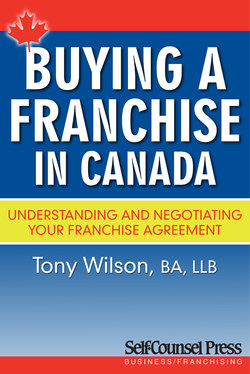Читать книгу Buying a Franchise in Canada - Tony Wilson - Страница 9
На сайте Литреса книга снята с продажи.
3. A Brief History of Franchising
ОглавлениеBack in the mists of ancient time (when a Quarter Pounder with Cheese® meant nothing and Colonel Sander’s parents were still in diapers), it’s said that franchising was born. Although some have suggested it started in England with the Crown granting exclusive territories to tax collectors for the collection of the 13th century equivalent of GST, for us in the modern world, common wisdom seems to agree that it started with the Singer Sewing Corporation (sewing machines) in the United States. Singer licensed retail stores to sell their sewing machines and sewing supplies in the 19th century. This evolved over the 20th century, and other businesses adopted the model; chief among them being soft drink bottling companies and gas stations.
For those of you who might recall the 1960s and 1970s as being the salad days of rock and roll, free love, and funny cigarettes, it was also the heyday of franchising. The United States became the grand central station of franchising activity; so much so that franchising became the subject of government legislation and regulation. (Around this time, the Alberta government also got involved with franchising legislation and regulation.)
The government did not get involved in the regulation of franchises because it needed the money, or because it wanted to take over the McDonald’s corporation and run it like the US defense department. Although McDonald’s and some other well-known brands were working rather nicely, thank you very much, the state legislators got involved because many other concepts were not running as well. Some consumers (in this case, those voters who were acquiring the franchises) lost their shirts (and their houses) as a result of getting into franchises in which the franchisor wasn’t capitalized enough, or misrepresentations were made by franchisors or their salespeople to get the consumers into the deal. Complaints were made to politicians and the government reacted.
Laws were enacted that treated the sale of a franchise like a “securities” offering, which required franchisors to make disclosure of material facts to franchisees and to give them some time (i.e., 14 days) to do their due diligence and think about the deal before they signed on. In short, the politicians got involved because a few bad operators caused them to get involved. (Government doesn’t tend to get involved unless events force it to or people are pressuring it to.)
